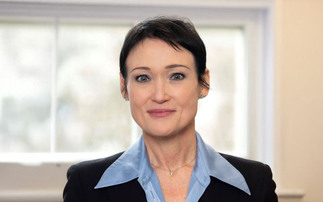Insurers could be facing an increase in declined claims as the complexity of health problems rises, according to the London School of Hygiene and Tropical Medicine.
A paper released today entitled Ageing in the European Union, one of seven papers in a research project called the Lancet Series on Europe, stated that the complexity of health problems was increasing and more people would have several comorbidities and chronic diseases in older age.
The paper warned: "Responses to population ageing should not be complacent. More people will be afflicted with disorders that are common in older people, such as cancer, fractured hips, strokes, and dementia.
"In the UK, for example, the number of cases of cancer in people older than 65 years is expected to increase between 2007 and 2030 by 76.2% in men and 67.5% in women, as a result of both population growth and ageing."
It added the combination of the obesity epidemic and aging population would see a "substantial increase" of older patients with diabetes.
The paper also said: "The proportion of people with mental health disorders will also increase. The number of people with dementia is projected to more than double to 14.5 million in the EU between 2010 and 2050 - equivalent to 3.3% of the total population and 10.1% of the population aged 65 years or older.
"Apart from a substantial increase in the proportion of people with these disorders, the complexity of health problems will increase."
Martin McKee, professor at the London School of Hygiene and Tropical Medicine, said: "The financial services sector is structured in that it does well for the industry but very badly for ordinary people. I am sure there will be tremendous pressure to buy insurance policies that may not necessariyk deliver when people need them."
"Older people tend to have multiple morbidities, which makes their needs difficult to predict. As a consequence, insurers tend to avoid them. I am sure that there will be greater marketing of insurance for non-urgent procedures, such as elective surgery, but many older people will have co-existing conditions that exclude them."
He added the deterioration in the economy was reducing the willingness by employers to pay for insurance for employees with a long-term decline in cover and more people self-paying when they need care.
"In the longer term, I suspect that the current reforms will be abandoned when it becomes clear that they are unworkable and we will see a return to what happened under the last government, when NHS performance improved steadily commensurate with greater investment," McKee said.
"The main factor that will determine insurance cover will be the economic situation."
The Lancet series of papers covers a range of subjects, from how the financial crisis is affecting health in Europe to whether children's health services are keeping pace with the changing landscape of child health.
According to paper 4 in the series, Health services for children in western Europe, the Uk has shown a "worrying" lack of specialist training to act on rising need for non-acute health services for children.
It outlined GPs in the UK could receive no specific paediatric training beyond undergraduate level.
Dr Ingrid Wolfe, programme director for the Evelina London Children's Hospital, Guy's and St Thomas' NHS Foundation Trust, said: "Personal care budgets that are coming in with the Health and Social Care Act may sound appealing at first, but like many children's doctors, I am concerned that parents of children with complex long-term conditions may find themselves in trouble when their budgets run dry.
"Will insurance companies be prepared to provide supplementary cover for children with expensive care needs? Will families be able to afford this type of insurance?"











